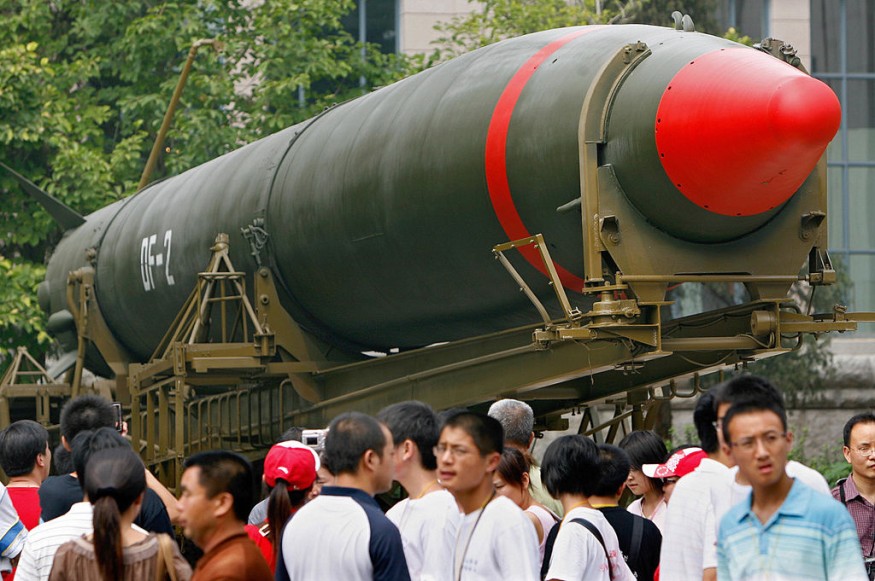Defense authorities worry that Russian President Vladimir Putin may demonstrate his military prowess by showing the Poseidon nuclear torpedo.
According to a senior UK defense source quoted in the Times of London on Monday, NATO allegedly warned its members and allies in an intelligence assessment that the Kremlin intends to test so-called "doomsday" nuclear torpedo drones.
According to other reports, the Belgorod, a large nuclear submarine, has vanished from its home base in the Arctic Circle and maybe its route to conduct a risky and devastating nuclear weapon test known as Poseidon.
Poseidon is a long-range underwater nuclear weapon intended to reach its targets underwater and strike coastal towns at a great distance.

Russia Might Have 'Secretly' Deployed Its 'Weapon of the Apocalypse' Poseidon
It is considered an "Intercontinental Nuclear-Powered Nuclear-Armed Autonomous Torpedo" and is thought to be capable of traversing significant underwater distances.
According to the Daily Mail, Poseidon is capable of a nuclear blast that may cause a 1,600-foot nuclear wave that is "intended to drown and irradiate coastal communities."
The Russian president revealed the next weapon back in 2018. According to Russian media, the apocalypse weapon can travel up to 6,000 kilometers underwater.
It has a two-megaton explosive within. To put this into perspective, consider that this is more than 130 times the nuclear explosion caused by "Little Boy," the atomic bomb that destroyed Hiroshima in Japan in August 1945 during World War II.
"It is a giant torpedo which can hit coastal cities with devastating results," said Naval News.
"Compared to an intercontinental ballistic missile it is very slow, but possibly unstoppable," added the report.
Poseidon is a completely new type of weapon - which will demand a shift in the strategy of the western fleets, leading to the development of new needs and new ways to oppose it, expert HI Sutton was cited as saying by the Italian news.
Due to the worldwide ban on nuclear weapon testing, the weapon has never been tested, and if Russia were to do it right now, this would be a very "provocative" act on their part.
Dire Effects of Poseidon
Mark Foreman, associate professor of nuclear chemistry, industrial materials, and recycling at the Chalmers University of Technology, said the torpedo would have a direct, disastrous impact on the marine life nearby in the event of an explosion in Gothenburg, Sweden.
Foreman told Newsweek that the subsurface bomb would do greater mechanical damage than one that happens in the air.
According to Foreman, the fish and other sea creatures that are kilometers away from the explosion will die.
He added that an underground nuclear explosion causes more harm to a ship's hull than one above the water's surface.
Foreman acknowledged that it was impossible to predict the exact potency of such a weapon. Still, he noted that some early reports suggested it would match the Tsar Bomba, the largest nuclear bomb ever exploded. Soviet thermonuclear aerial weapon Tsar Bomba was tested in 1961.
RELATED ARTICLE : Possible Impact of Explosion of All Nuclear Weapons; Here's the Scientific Explanation!
Check out more news and information on Energy and Physics in Science Times.












